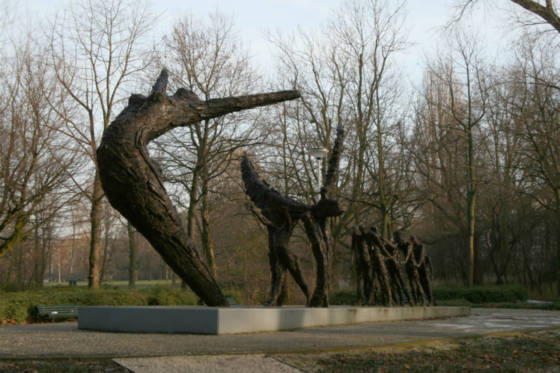New slavery museum should include all of Dutch colonial past: report


The National Trans-Atlantic Slavery museum which is to be built in or around Amsterdam in the next few years must focus on all Dutch former colonies, the Dutch culture council and the Amsterdam arts council have recommended.
The report, which was handed to caretaker culture minister Ingrid van Engelshoven on Monday, said that plans for the museum should not be focused solely on former colonies Suriname and Dutch Antilles to start with, as originally intended.
Other parts of the world, such as eastern and southern Africa and Indonesia which formed part of the Dutch colonial empire ,should be included from the start so visitors would get to see ‘the complete story of colonial slavery and its worldwide impact’, the council said in its evaluation of the plans.
Director Urwin Vyent, of the national slavery and heritage institute NiNsee, one of the organsations which called for the museum to be built, said he did not object to the inclusion but feared it would lead to delays.
There is much that is unknown about the Dutch slavery past in the former Dutch Indies, he told Nu.nl.
‘More research is needed and a conversation has to be started with the Indonesian community in the Netherlands. […] We really want this museum to be built as soon as possible, so we don’t want any delaying factors,’ Vyent said.
The councils agreed that the museum, which will cover some 7,000 m2, should be a ‘landmark building’ where ‘every Dutch citizen could learn about a hitherto underexposed part of their history and the ramifications of this in the present day.’
The caretaker cabinet has earmarked €1m a year from 2021 to 2024 to develop the museum. Amsterdam city council said it will decide on the main outline of the plans in December.
Thank you for donating to DutchNews.nl.
We could not provide the Dutch News service, and keep it free of charge, without the generous support of our readers. Your donations allow us to report on issues you tell us matter, and provide you with a summary of the most important Dutch news each day.
Make a donation